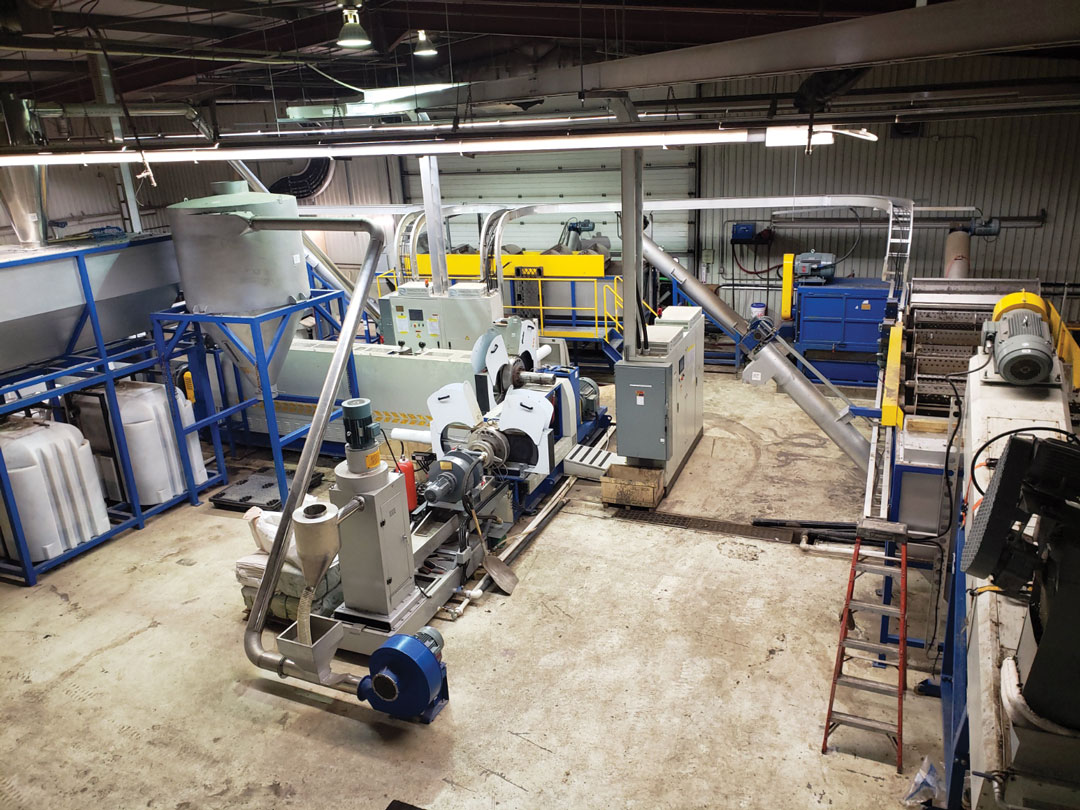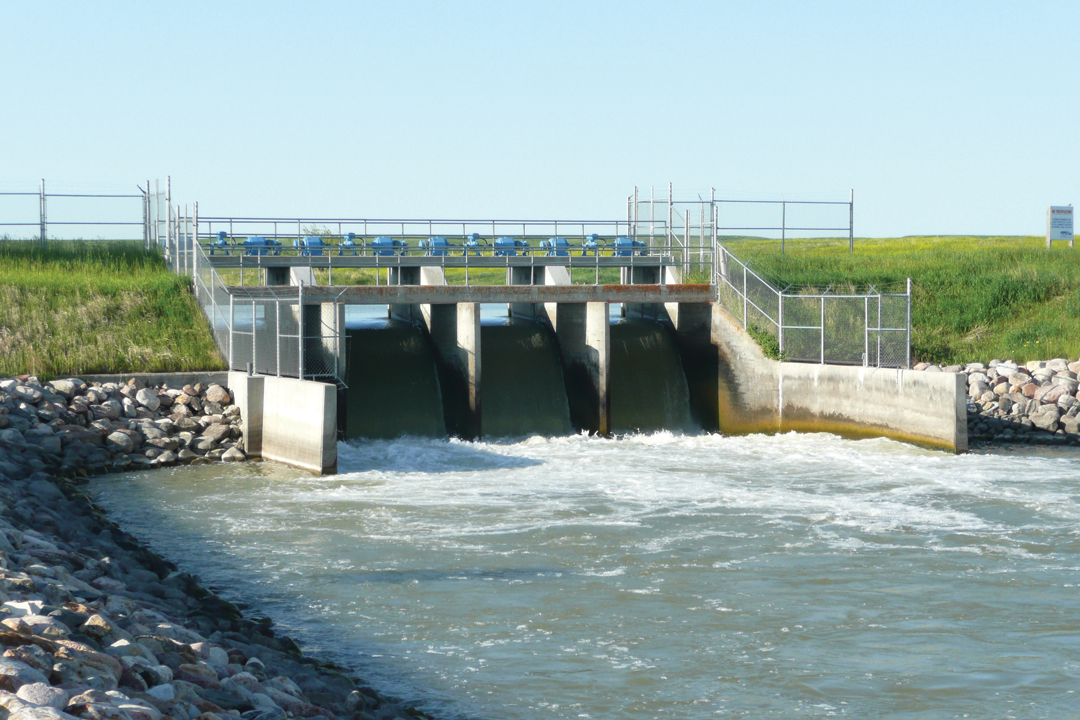CIRCULAR LOGIC
BY CULLEN BIRD • PHOTO COURTESY OF CLEANFARMS
From grain bags to plastic pellets to grain bags: that’s the circular vision of the many stakeholders behind the Alberta Ag-Plastic. Recycle It! program.
The aim of the three-year pilot project is to collect used grain bags and plastic twine at 20 collection sites throughout Alberta and have them recycled into useful materials. The collection program is run by Cleanfarms, a non-profit environmental stewardship organization that collects and recycles empty containers and other agricultural plastics. It does so on behalf of the Agricultural Plastics Recycling Group (APRG), using $1 million in funding from Alberta Agriculture and Forestry that is administered by Alberta Beef Producers.
“The reception has been tremendous,” said Barry Friesen, Cleanfarms’ general manager. Pick up at collection sites has been good and farmers are very interested in recycling the plastics they have been storing, he said. “Farmers have to manage these materials regardless, whether there is a collection program or not.”
As part of the pilot project, the APRG commissioned Clean Farms to conduct a waste characterization study, a market study and a farmer survey in 2019. The waste characterization study estimated that grain bags and twine accounted for about half the plastic waste produced on Alberta farms. Other sources include greenhouse film, net wrap and silage plastic. The survey of 428 farmers indicated 28 per cent took their twine to landfill, and 46 per cent burned it.
The collection program is the latest step in a years-long effort by the APRG to establish better management of agricultural plastic waste in the province. Launched in September 2019, it will run until September 2022, with plans to increase to 25 collection sites in 2021 and 30 sites in 2022.
“There was a handful of recycling programs across the province, but very much a patchwork, depending on the municipalities and whether they were running a program or not,” said Tammy Schwass, executive director of the Alberta Plastics Recycling Association, an APRG stakeholder.
In 2018, the APRG successfully applied for the pilot funding. The aim now is to transition into a permanent Alberta program through provincial legislation, something already done in Saskatchewan. “What we’ve seen in Saskatchewan is legislation that enables a producer-led program,” said Schwass.
The Saskatchewan legislation, which came into effect in November 2018, mandates that “first sellers” of grain bags must join a recycling program to allow those bags to be recycled. Cleanfarms runs that recycling program in Saskatchewan, and is hoping it can be replicated on a permanent basis in Alberta, said Friesen.
The long-term vision is to create a circular economy in which agricultural plastics are kept out of landfills and reused or recycled so they can contribute to that economy as long as possible. Complicating its immediate ambitions, Cleanfarms was forced to find new markets for recycled plastic when China stopped accepting half the world’s plastic waste in 2018.
The organization is now arranging for plastic material collected in Alberta to be sent to several processing facilities, including Crowfoot Plastics between Hussar and Bassano and a new facility in Bashaw. PolyAg Recycling opened the Bashaw processing plant in January 2020. There, grain bags are flaked, washed, processed and made into low-density polyethylene (LDPE) pellets, which can be sold as a commodity to manufacturers. The flexibility and toughness of LDPE pellets means they can be made into film products such as garbage bags and bin liners.
There is opportunity to do environmental good while creating new jobs in this sector, and farmers are key to its success, said Friesen.
To locate a collection site, visit cleanfarms.ca and click: “What to Recycle & Where.”







Comments